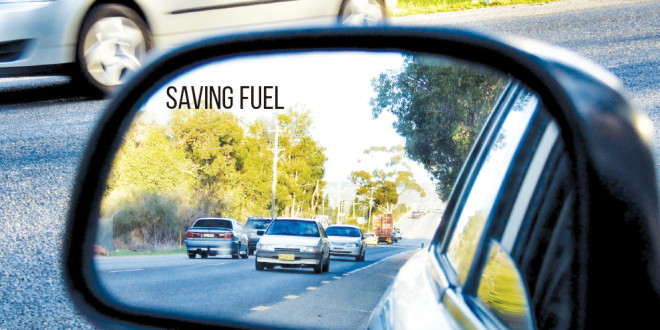Energy efficiency is a way to effectively utilize resources which preserve essential assets for future generations while not minimizing the comfort level for today’s generation. The scare of scarcity of resources is false, because there is enough God-given resources to meet the needs of the 7 billion people on earth and many more billions in the future, so long as we don’t waste them. Efficiency is the way of avoiding waste without sacrificing comfort in any way. As Mahatma Gandhi said, “Conservation is not an abstract principle but a vital link between today and tomorrow, which teaches us to work with Nature and not against it. The economic and environmental movements have to go hand in hand.”
We are finding that more countries around the world are pursuing car ownership. India, being one of those countries, has plans to construct another 12,000 miles of expressways by 2022. Those cars driving on those highways are going to consume more petrol or diesel, creating more demand for fuel.
Cars bring us convenience, personalized surroundings, security, and status. We are willing to pay the price for these benefits, but with petrol costs rising, finding ways to save money would be timely.
In Indian driving, jockeying for position is common practice. Sharing the road with a variety of vehicles – which are moving at different speeds (motorbikes to lorries) and have varying levels of occupant protection (bicycles to cars) – as well as with pedestrians and occasional animals, there is a lot to pay attention to as you drive. Your vehicle carries precious cargo and getting to your destination will be safer if you use methods that also save you money.
Like ripples in a lake when we toss a stone in the water, the benefits of driving in a way to save money extend. When we save money, we consequently…
…lower air pollution,
…drive safer, and
…make our car last longer.
Research shows that the driver is in the best position to save money. If you have your hands on the wheel, you can save 20 to 30% of your fuel cost!
1, In highway driving, it takes gas to get a vehicle to cruising speed. Every time you slow unnecessarily (approaching a car too quickly), you’ve lost your cruising speed and energy. Research shows that driving fast, changing lanes quickly, and braking suddenly guzzle gas and are unsafe. Have a buffer zone to react safely and economically to speed changes. Save up to 33%!
2, Combine short trips and plan routes to achieve efficient fuel consumption. Fuel usage and emissions can double with short trips. Organize your week to have a warm car working at its optimum levels.
For example, one of the best courier services from America, United Postal Service (UPS), delivers 15 million packages a day worldwide. Their engineers developed a “route- optimization plan” to reduce waiting at left hand turn lanes and save time and money for their company.
3, Use time to save money. When you are in a rush, you speed, accelerate quickly, and brake sharply – all of which waste gas. Get an early start. Time as well as gas will be saved.
4, Keeping the temperature of the car’s interior low on hot days will minimize the air conditioner usage and will lead to increased savings. Park in the shade or in a garage to decrease gas evaporation. Open the doors and windows to dissipate the heat before getting in. Wait a few minutes after starting your car before you turn on the air conditioner to not overload your vehicle’s systems during its warming up phase.
5, Replacing your spark plugs according to your owner’s manual maximizes your fuel economy. You can lose 10% off your mileage by just one spark plug not functioning properly, in a 4- or 6-cylinder engine. Save up to 12%
6, Volumetric thermal expansion occurs to petrol which increases in volume during warm temperatures but not in weight or energy content. Petrol is denser when cooler. Since fuel is sold by volume and not weight, if you are filling your tank in the middle of the day, then you are getting less fuel than if you fill it early in the morning or later in the evening. Also, there is less evaporation into the atmosphere during the cooler times of day.
7, The Oxygen sensor is important for your car to saving money as well as reducing emissions. The sensor monitors the amount of oxygen in the exhaust, converts the reading into a signal and sends this to a computer. If too much or too little oxygen is in the exhaust, the computer will identify an incorrect air to fuel mixture and adjust the fuel coming into the engine. A clogged or failed oxygen sensor will give the engine too much fuel which is safer but burns more petrol. Another side effect is that more unburned hydrocarbons enter the exhaust causing the catalytic converter to run hotter, which could cause it to suffer partial or complete blockage. So, you can save up over `2000 of your petrol if you adjust or replace your oxygen sensor to proper working conditions.
 Juliet Thomas Christian Articles for Young Women
Juliet Thomas Christian Articles for Young Women


